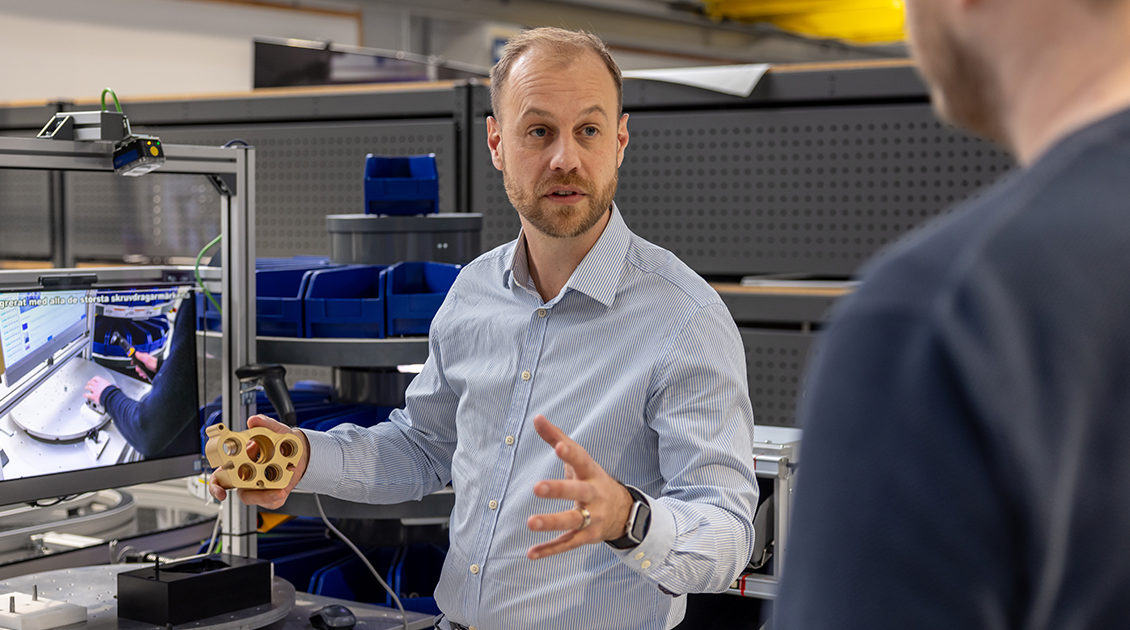Hard at work, how's your brain's work environment?

Photo: University of Skövde
In a new project, researchers are set to determine which measures truly work to create a good work environment for our brains – solid cognitive ergonomics. The assignment comes from the Agency for Work Environment Knowledge and will result in a concrete and useful knowledge compilation.
Cognitive ergonomics involves adapting workplaces and tasks to how our brains function. It's about creating conditions where we can think, concentrate, learn, and make decisions more easily. The goal is to improve how we work and increase our well-being at the workplace while reducing the risk of issues like burnout.
Developing specific measures
Peter Thorvald, associate professor in integrated product development at the University of Skövde and an expert in cognitive ergonomics and cognitive workload in manufacturing industry, explains that there is good knowledge about what is perceived as cognitively demanding, but currently lacks a compilation of specific measures that can yield results.
"We need to consider what employers can control. Things like workplace design, lighting conditions, and shifts are definitely influenceable, but it's harder for an employer to affect an individual's sleep habits or dietary intake, for example, which we know can have a significant impact," says Peter Thorvald.
Knowledge base: 8000 research articles
Peter Thorvald, along with three other researchers from Chalmers University of Technology, the Swedish Defence University, and the Royal Institute of Technology, will review previous research in the field and look for factors that have been shown to affect cognitive ergonomics in workplaces. They are currently conducting an initial screening of the literature, and there is a lot to go through. Based on nearly 8000 research articles, they will extract the most relevant results.
"We will summarize the most relevant literature and compile the measures that have been tested with positive results."
Beneficial for both employees and employers
Peter Thorvald hopes that it will become a concrete and useful knowledge source for all involved in occupational health and safety work. And good cognitive ergonomics are beneficial for both employees and employers.
"For the individual, it is of course good to have a cognitively stimulating job without being overloaded. We grow as humans from that, and cognitive abilities are trained just like the physical body can be trained. For the employer, a healthy, happy, and positive staff leads to better results, increased competitiveness, and better products."
The results will be presented in a knowledge compilation around the turn of 2024–2025.
